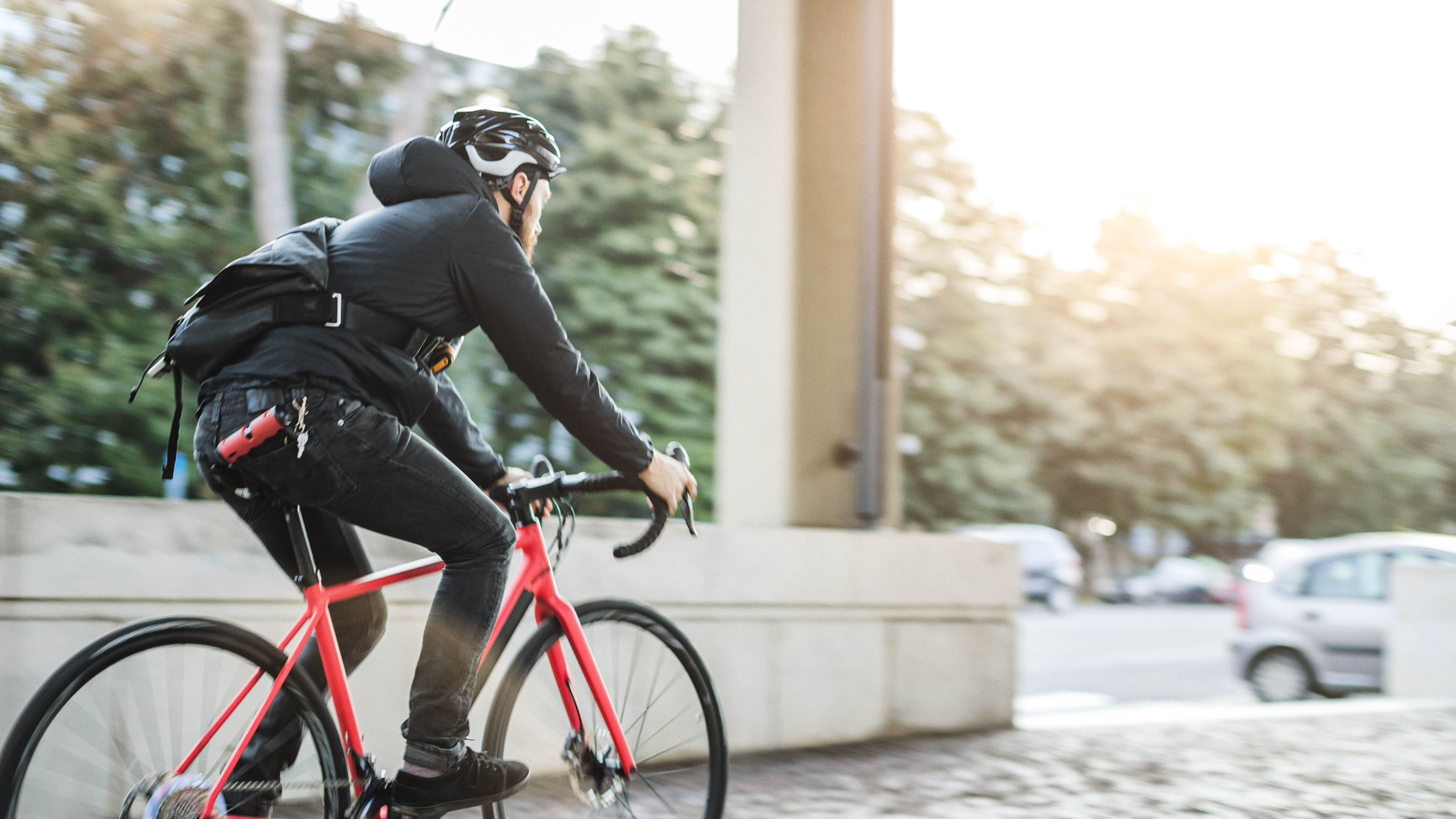
Best lightweight bike locks 2025: highly transportable and wearable locks
Don't let your bike lock weigh you down. We have tested and rated all the lightest bike locks
As cyclists, we can get obsessed with weight, be it our bodies or our bikes, so you would think we'd all want to use one of the best lightweight bike locks, too. The lightest bike locks certainly make transportation easier, especially when they are wearable. So, why don't we all have one?
Until recently, there was a direct correlation between a bike lock's weight and its security level. However, thanks to innovations in locks, such as our best bike lock, the OnGuard RockSolid, lightweight bike locks that resist angle grinder attacks are now possible. This advancement in high security is also improving budget lightweight locks, like the OnGuard Pitbull, which boasts a diamond Sold Secure rating while remaining very affordable.
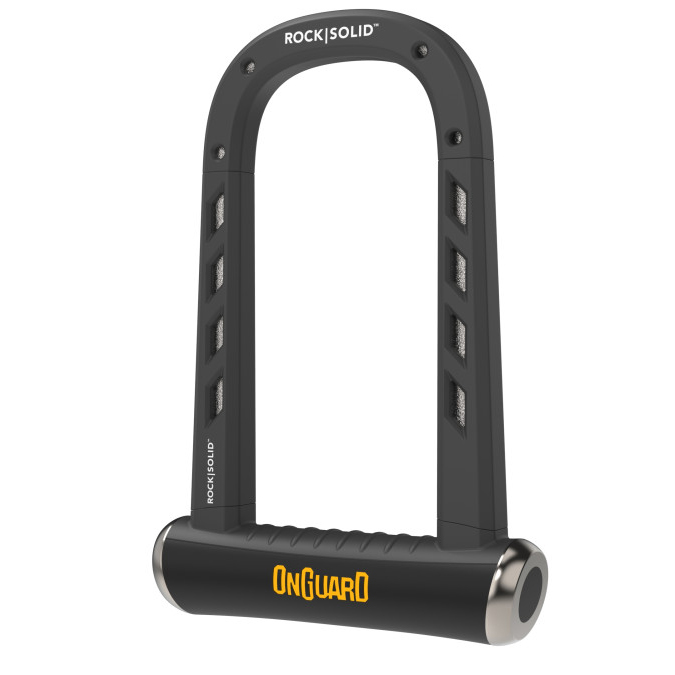
It is nearly unbelievable that the RockSoild 8590 weighs just 1.3kg/2.8 lbs, yet it is one of the most secure locks we have ever tested. It quite literally turns angle grinder-cutting discs to dust and won our angle grinder-resistant bike locks test.
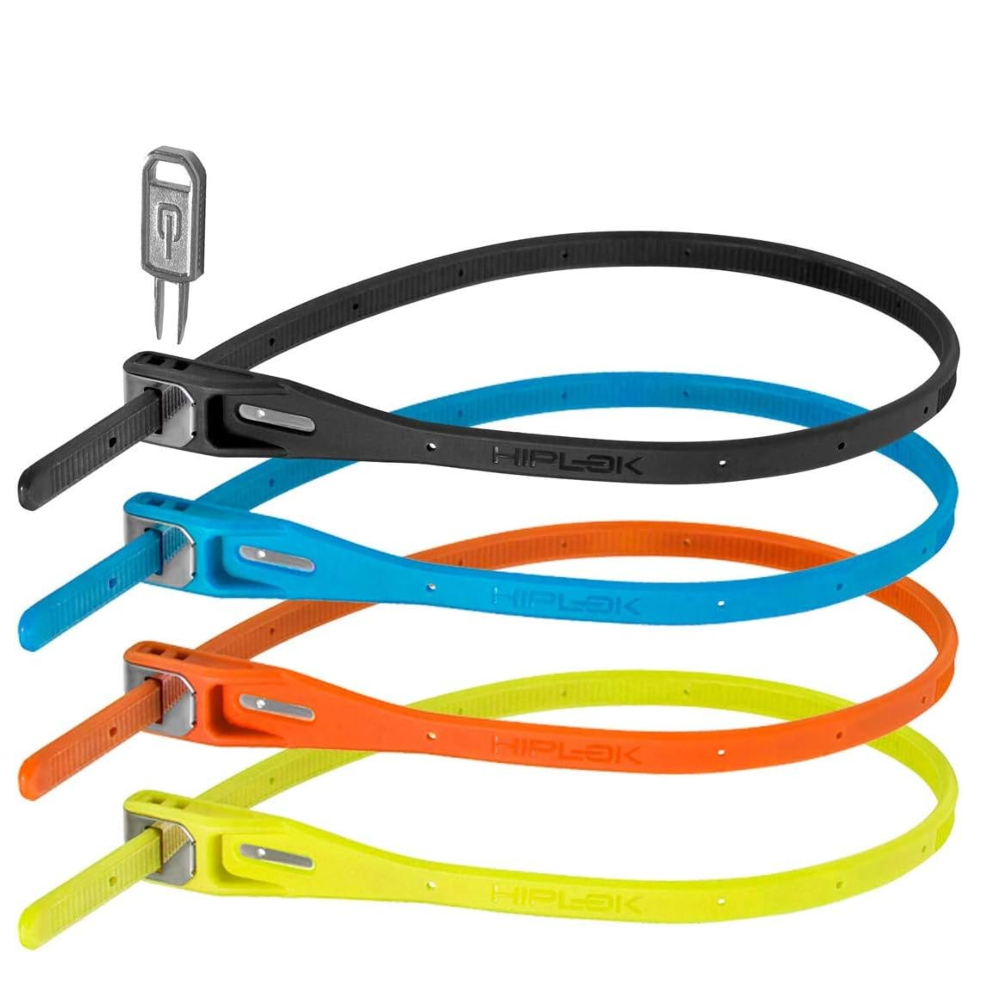
Light and incredibly portable, the Hiplock Z Lok sets the standard for lightweight café locks. It is perfect for deterring opportunistic thieves while you grab a flat white and will slip easily into a jersey pocket.
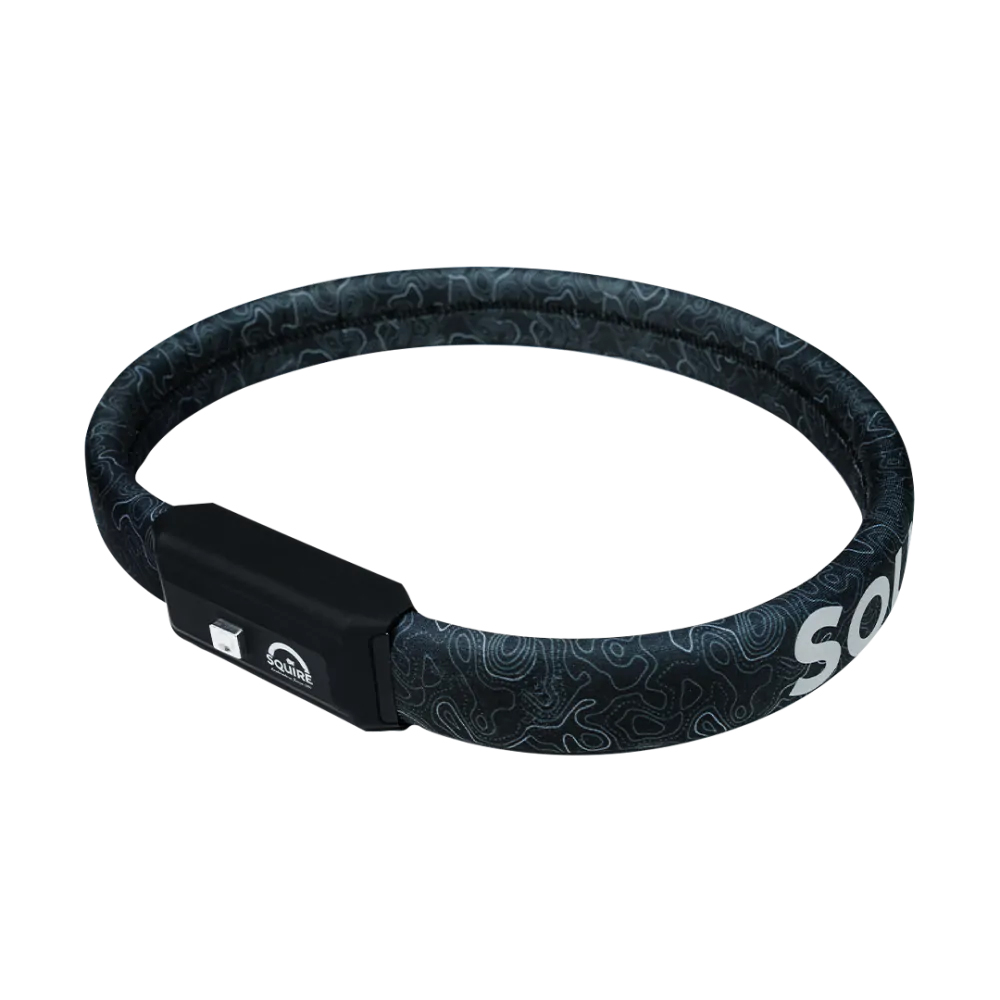
At just 1.1kg / 2.4 lbs, the Squire Straplok 35/850 is incredibly light and comfortable to wear, thanks to its belt-like design. This is a well-thought-out and easy-to-use lightweight and wearable lock.
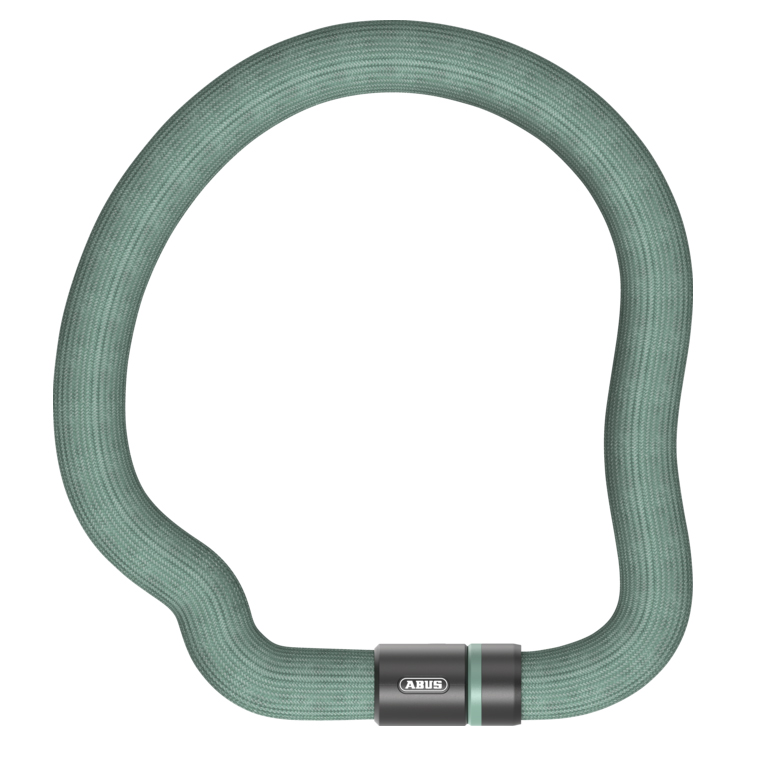
Commonly referred to as Goose because of its gooseneck style design, the Abus 6206k Goose provides a sense of unlimited flexibility. Weighing in at just 1kg/2.2 lbs, it's one of the lightest locks included in this guide.
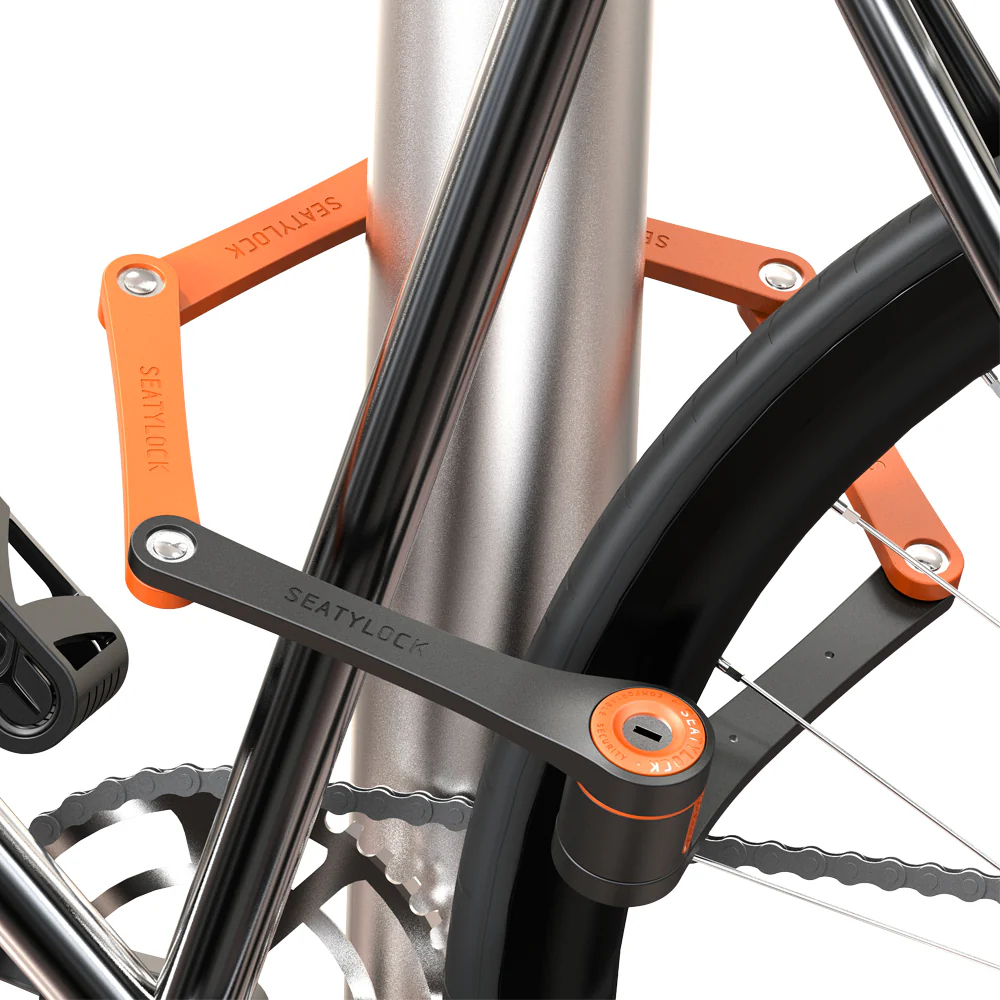
Seatylock are the masters of lightweight bike locks. Surprisingly, the Foldylock Compact is not their lightest offering at just 1kg. However, the Compact strikes a better balance of reach and security without adding significant weight.
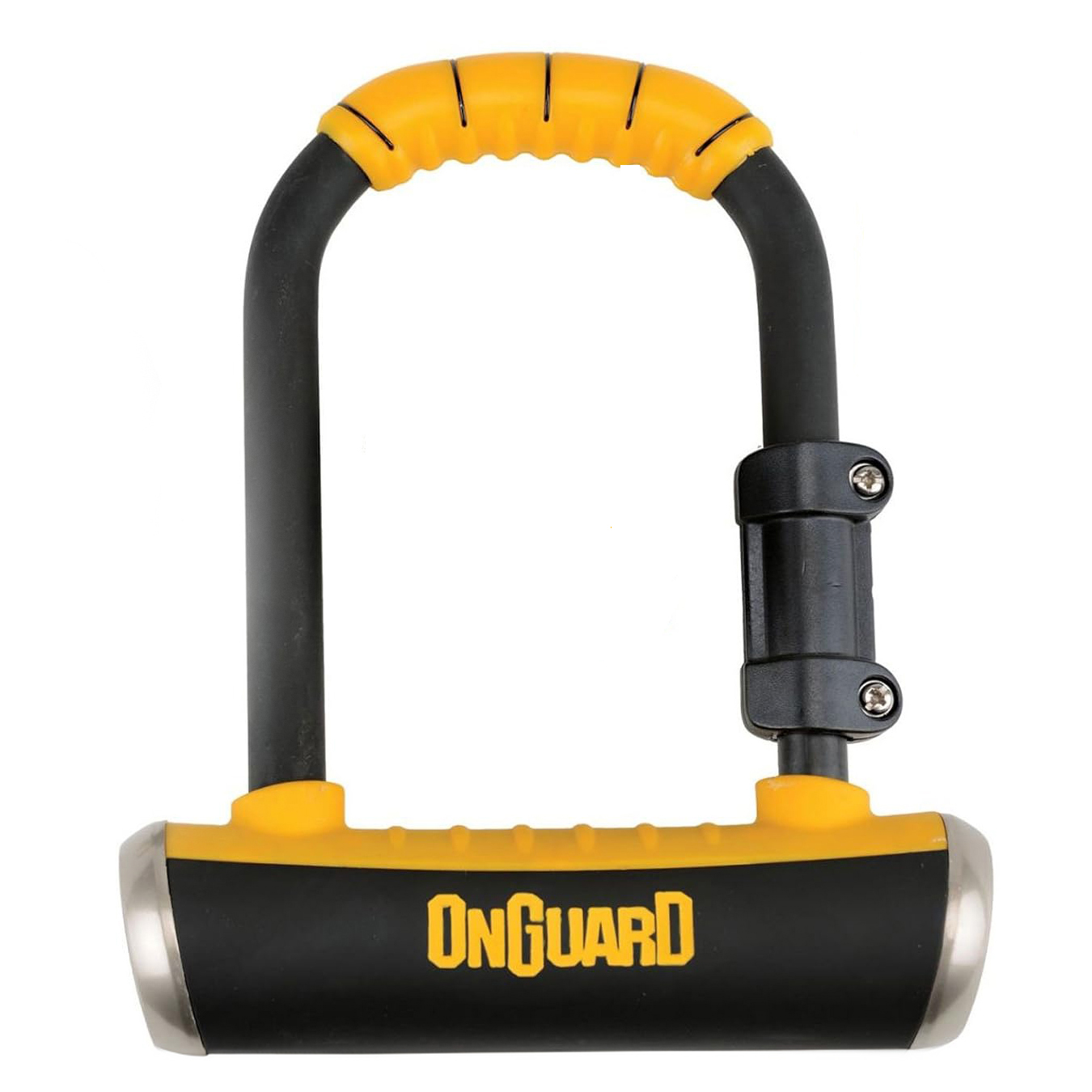
Weighing just 1.3kg/2.8 lbs, the OnGuard 8006 Pitbull Mini is equal to that of its more secure big brother, the OnGuard RockSoild, but at just a quarter of the cost, making it one of the cheapest diamond-rated locks available.
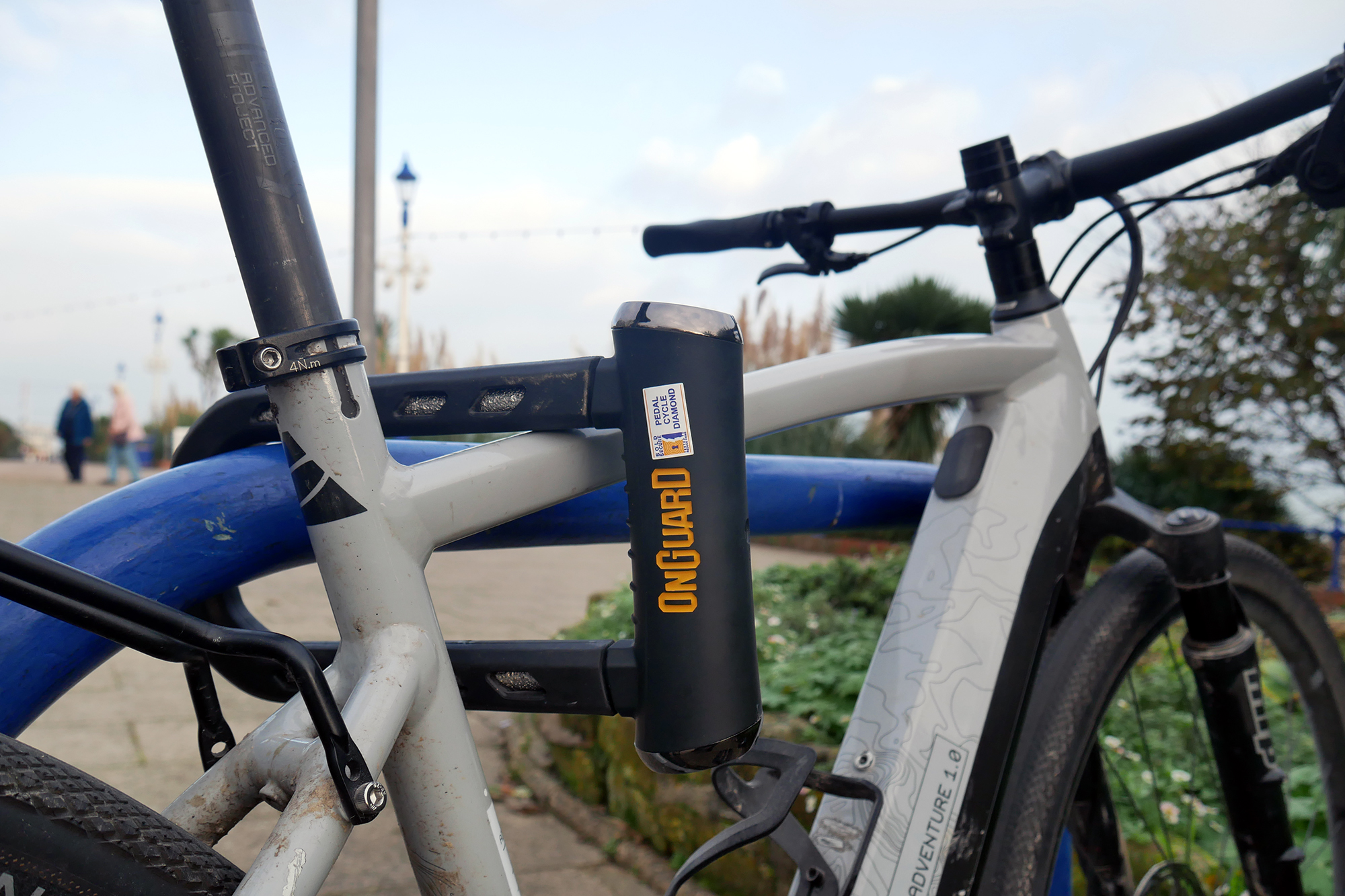
Despite being only 1.3kg/2.8lbs, it is one of the most secure locks available right now
Our expert review:
Proving to be light, small, low cost, and virtually impenetrable when attacked by an angle grinder. It's no wonder that the OnGuard RockSolid 8590 bike lock came out on top as Cycling Weekly’s best overall bike lock and the winner of my angle grinder-resistant bike locks test.
This Sold Secure Diamond-rated lock is just 1.3kg/2.8 lbs; It has a locking area of 17.5 cm/6.8 inches by 9cm/3.5 inches internal width, and there’s 157cm²/61.8in² of potential locking volume.
The key-operated lock mechanism is formidable, protecting against picking, pulling, and drilling. However, it was OnGuard’s anti-grinder feature that truly stood out to us. During testing, we exhausted three grinder discs, which hardly left a mark on the patented RockSolid surface finish of the hardened steel shackle. Plus, it is one of the most affordable options among its bike lock competitors, appealing to cyclists who prioritize security.
If I had to find fault with this absolutely brilliant lock, it would be that it doesn't feature a mount or the ability to be carried on the bike. But at 1.3 kg/2.8 lbs, is that really an issue?
Read our full OnGuard RockSolid bike lock review
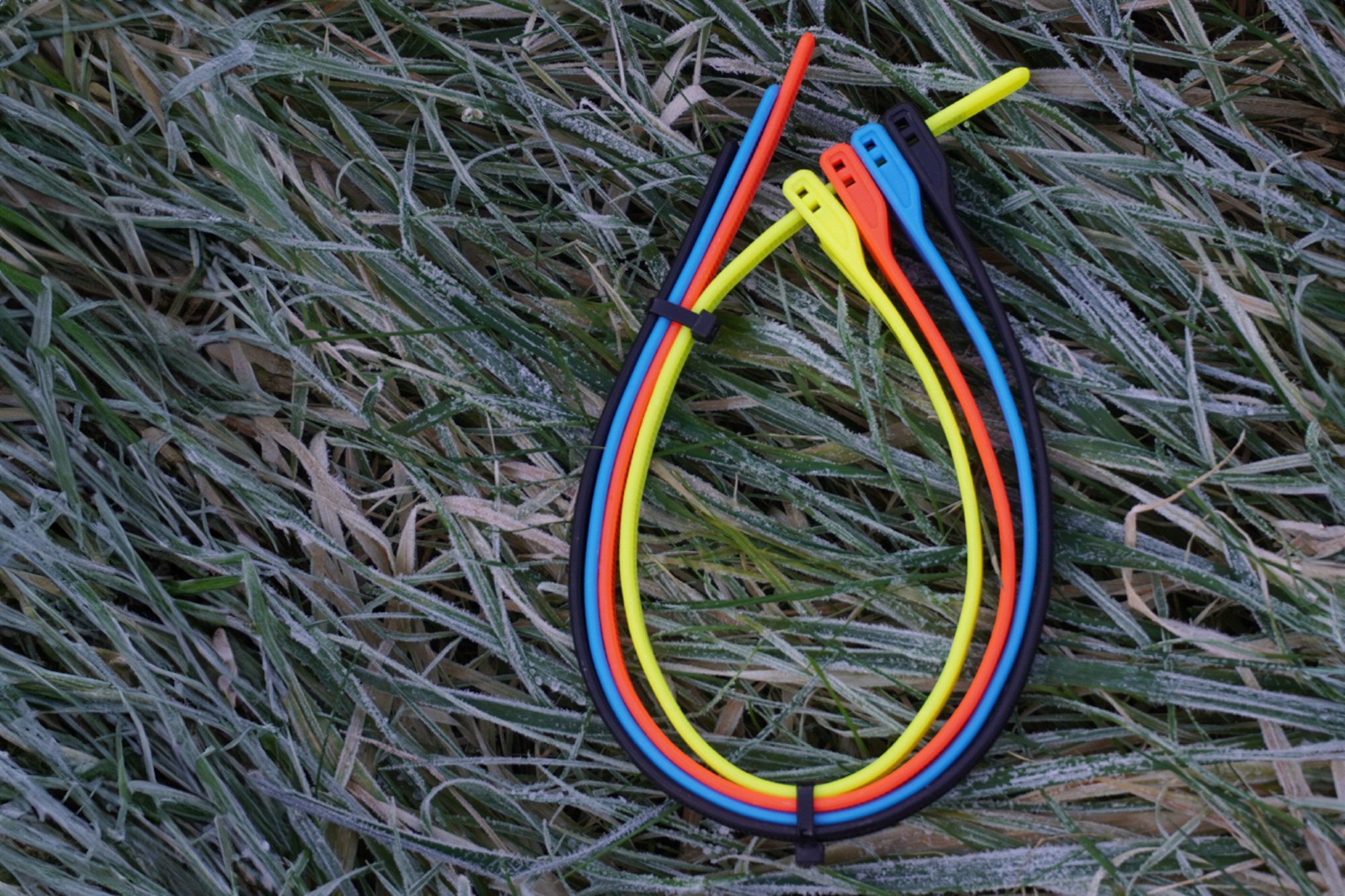
Fits in your back pocket and ensures your bike stays put while you grab a flat white
Our expert review:
Weighing just 70g/2.4oz, the Z Lok resembles an oversized zip tie with a steel ribbon enclosed in a plastic exterior. It's ideal for attaching your frame to a post or railing and securing your wheels, providing enough deterrent for a thief when you are in close proximity, such as during a café stop or at the pub. However, it’s not a lock you’ll want to rely on for extended periods, as it carries no Sold Secure rating.
During testing, I was never troubled by the Z Loks' length; at 40cm/15.7", securing a top tube or seat tube to something immobile is about right. The zip tie style design allows for a decent amount of adjustment, and you can really ramp up the tension, which helps remove any possibility of gaining leverage when cutting. The combo locks also mean no keys are needed, and unlike the other Z Loks, you don’t have to carry the forked tool to remove it, which means you can just grab and go and cut down on your pre-ride faff!
In conclusion, considering the Z Lok's cost and ultra-low weight, it's a no-brainer to always keep it by your helmet and shoes or in a handlebar bag, ready to go. I’ve encountered numerous scenarios where it adds a little extra security and peace of mind, such as securing a battery in an e-bike that isn't key-operated, locking my helmet to my bike so I don't have to carry it around, and the list goes on.
Read our full Hiplok Z Lok Combo review
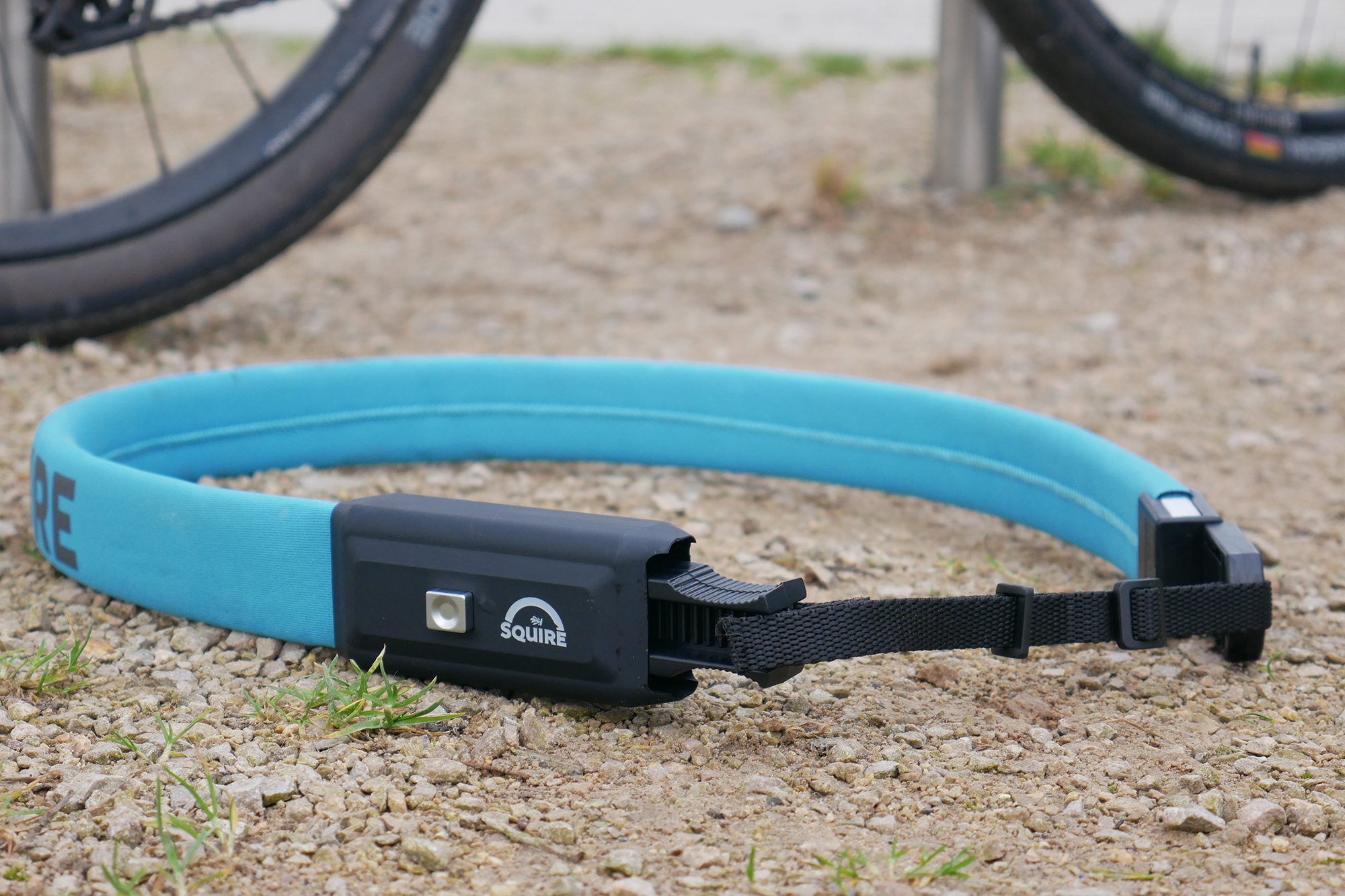
A brilliant wearable adapter means the Straplok stays secure and comfortable
Our expert review:
Made in the UK, the Straplok 35/850 (850 denotes its overall length in mm or 2.7ft) uses multiple high-tensile steel cores wrapped in a flexible layer and protected with a neoprene cover. Squire secures the Staplok using its unique patented ‘linear pin tumbler’ locking mechanism. Simply insert the key, which requires no turning, and push the button to unlock.
There is much to like about the Squire Straplok, starting with its comfort. Squire has put much effort into developing the belt adapter, which can be tensioned to keep the lock in place while pedalling. The neoprene cover supports this, making the lock soft to the touch.
Thanks to its sublime flexibility, using the Straplok at the bike rack was a breeze. The simple button lock barrel makes unlocking and locking easy, especially when reaching for the lock in awkward or tight situations.
However, it's not all positive. Despite the Straplok's 4.5 out of 5 stars, it only holds a Sold Secure silver rating. This rating will restrict its applications and influence the value of the bike you ultimately secure with it.
Read our full Squire Straplok 35/850 bike lock review
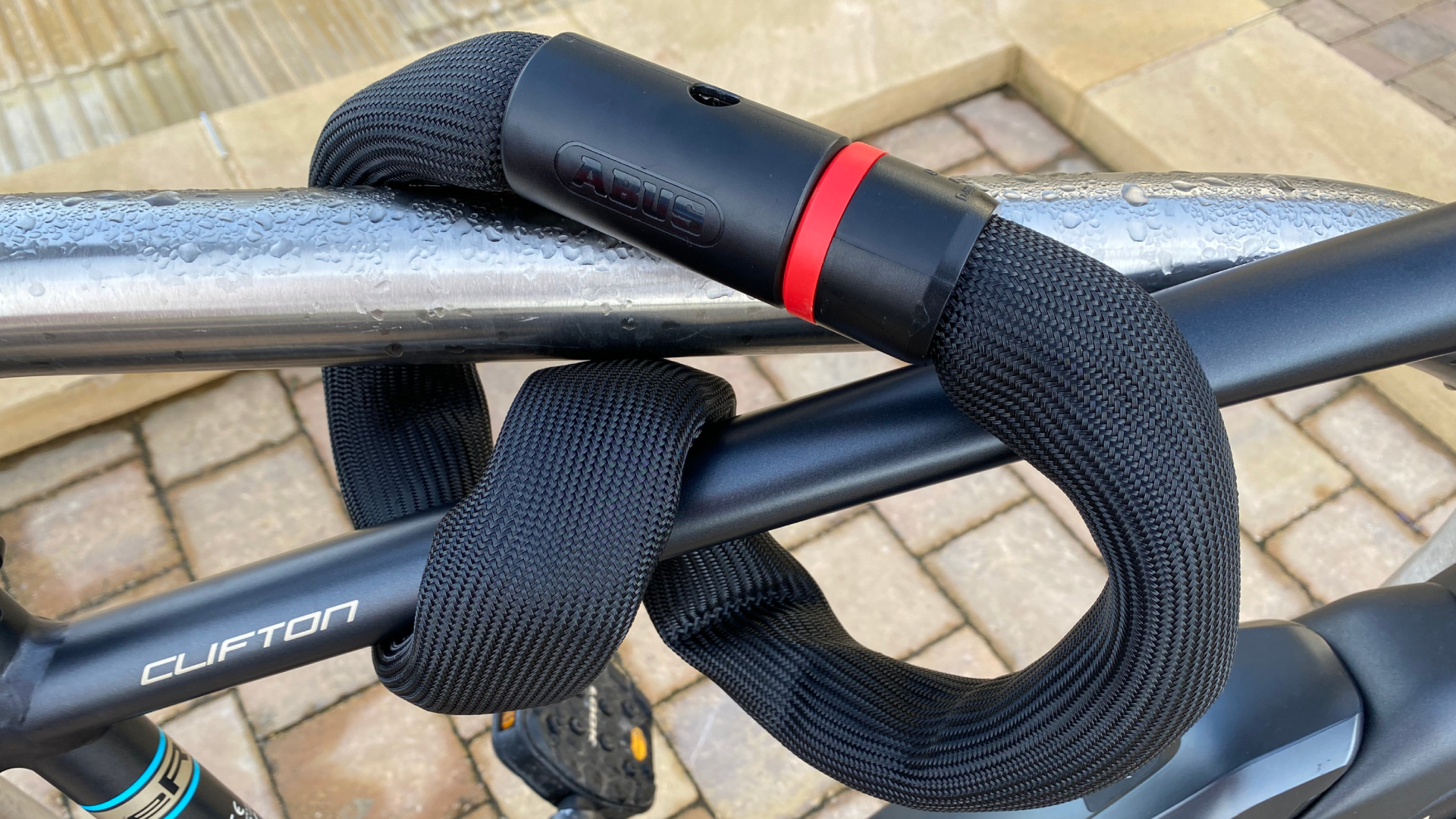
So flexible you could almost tie it in knots
Our expert review:
The 6206K Goose's strength comes from a 6mm hardened steel chain. Two springs wound together along its length give the chain its characteristic Goose neck-like shape and add stability to the lock. After popping the Goose on the scales, I found it to be a little heavier than claimed, but what is 100g/3.5oz between friends? Given that chain locks are normally considerably heavier, I can show some forgiveness here.
The goose's foam and plastic coating, combined with its flexibility as a chain, make transporting it a breeze. It can be wrapped around almost any tube on your frame without fear of damage. These characteristics also make it a dream to use at the bike rack, as those springs make even the most awkward situations easy to navigate.
The 6206K is undoubtedly lightweight and one of the most useable locks I have encountered. While it's incredibly well made and, after weeks of testing in a variety of conditions, clearly durable, its low-security rating lets it down. You are unlikely to use the Goose as your sole lock, and if you do, you won't want to step too far away from your bike for prolonged periods of time.
That said, it will ward off opportunist thieves and could be a great option for bikepacking or the café ride.
Read our full Abus 6206K Goose review
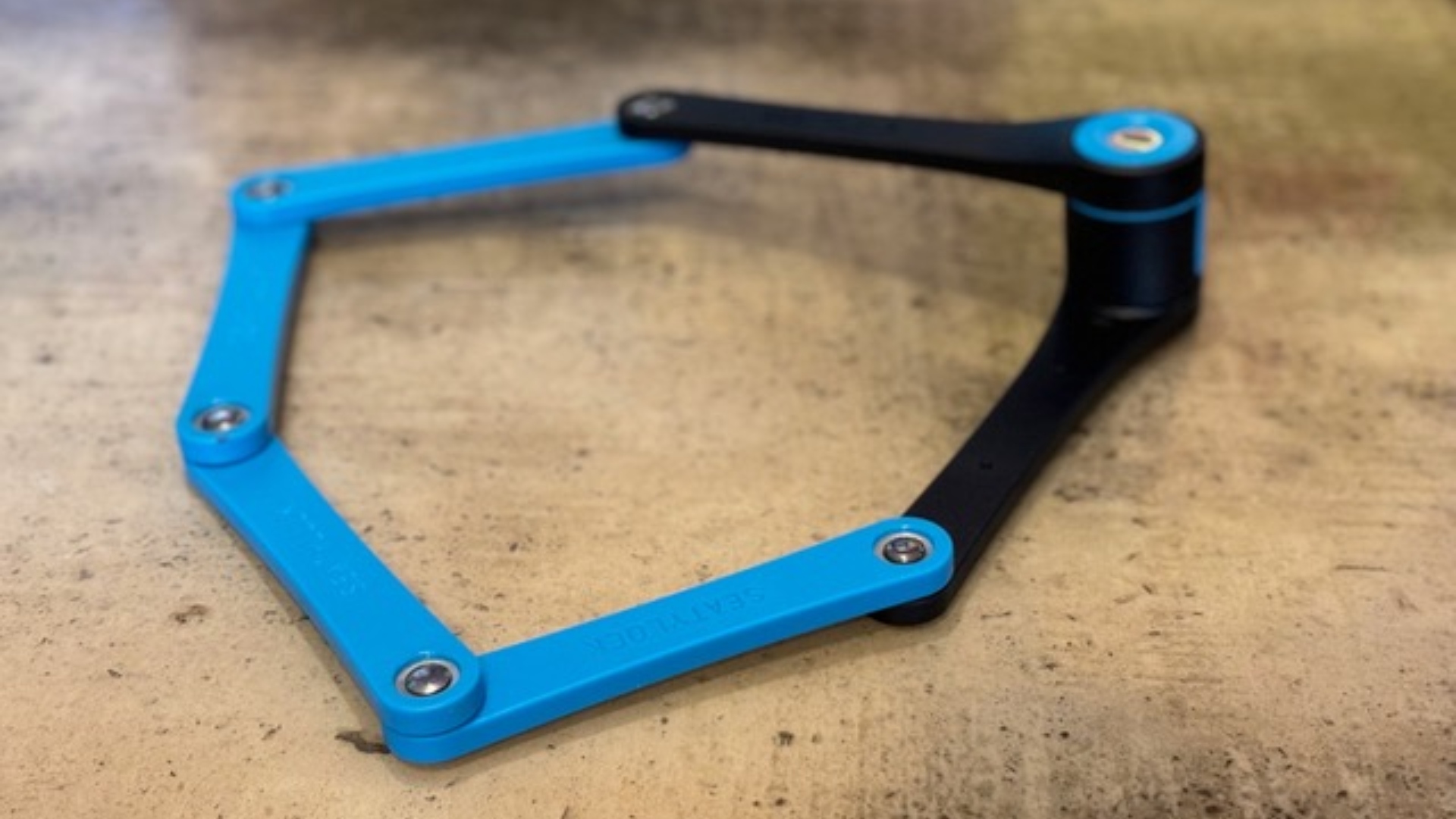
lightweight, compact and frame mountable
Our expert review:
This handy little folding lock proved to be just the right size. When folded up, it measures a compact 19cm/7.4" x 6cm/2.3", making it one of the smallest and lightest Silver-rated locks available. It features six strong steel bars connected by stainless rivets, creating a secure circumference of 85cm/33.4".
Like its rival, the Abus Bordo Granit X Plus, it can easily attach to your bike’s bottle cage mounts using a handy plastic case or the straps provided. Plus, I found it stays secure and whisper-quiet while you’re on the go.
I really appreciate how the internal locking space gave me enough room to fasten it through my bike's front wheel and frame before attaching it to a bike rack or similar. Thanks to its compact design, it’s less cumbersome and far easier to handle than the folding Abus. Locking up is just as quick as with a U-lock but with a touch of extra flexibility that this design offers. If you value both weight and portability, the Compact will surely be an attractive choice for you.
Read our full Seatylock Foldylock Compact lock review
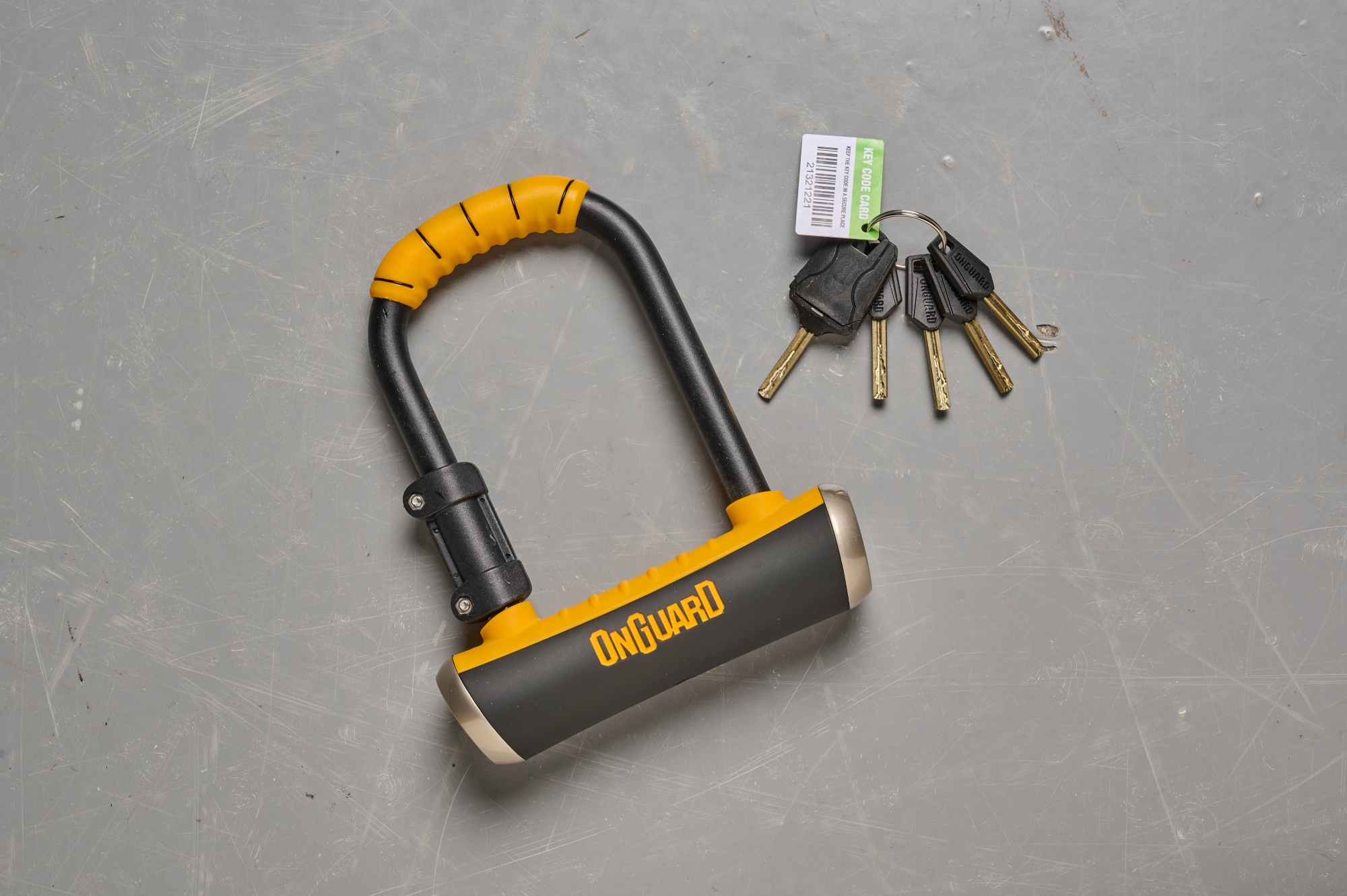
Small but mightily secure
Our expert review:
Don't let the Pitbull Mini's compact size fall you; it really punches above its weight. Weighing just 1.3kg, it boasts an impressive Diamond Sold Secure rating. This little champion measures only 9cm/3.6" x 14cm/5.5", yet it has a robust 14mm/0.5" hardened steel shackle and a secure ‘bump lock’ cylinder that resists picking, pulling, and drilling. Its lightweight design and handy dimensions make it easy to take along for the ride, whether using the included mounting bracket or just tossing it into your bag.
It rattled less than most bigger U-locks when I had it attached to the frame, but it certainly was not as secure as the folding locks, which can be mounted directly to a bottle cage mount. Its compact size naturally means the internal locking space is limited, restricting your options for locking your bike to various objects, which may not be ideal for users needing more flexibility. I found that for most dedicated bike racks, it was sufficient, but I struggled with railings or lamp posts.
If you consistently secure your bike in a similar spot, such as a train station or outside an office, and this compact lock fits well, it’s an excellent choice for minimizing your carrying weight without compromising security.

We put the best lightweight bike locks through extensive testing
The Cycling Weekly team tested locks for urban cycling by using them on rides to offices, supermarkets, pubs, and errands. Our evaluation focuses on everyday use, with ratings based on weight, shape, locking mechanism, attachment, feel, security, and value, the qualities most relevant to real-world scenarios.
The tech team rarely conducts destruction tests unless a lock claims resistance to angle grinders, in which case we have designed a slightly different real-world testing protocol. Instead, we will rely on reputable organizations like Sold Secure or ART for their expertise and recommendations on security levels.
Note that no bike lock is completely impenetrable; even those that claim angle grinder resistance can eventually be removed with persistence. It is advisable to get some of the best bike insurance policies that recognise your bike and offer a decent replacement value. For more about Cycling Weekly's testing methods, visit our How We Test page.
Having spent most of my adult and teenage years using a bicycle as transport, after a succession of terrible car purchases, and never being able to afford to be a two cars household. I have become accustomed to having to lock my usually valuable bikes pretty much anyway and to anything that is available.
With lightweight and wearable bike locks offering a wide range of security levels, the balance is always between the locks' overall weight and the security it provides, which makes for a relatively simple equation. Generally, the lighter the lock, the lower the security. Although this is not a hard and fast rule, it covers most of the locks featured in this guide.
Arguably, the locks application should determine the lock of choice; however, budget constraints start to play a part at this point. So, here is my quick cheat sheet for choosing the best lightweight and wearable bike locks:
What we're saying is that this advice is relevant for all bike locks. If you feel your bike is at risk, then more security is rarely going to be a bad thing; it really is as simple as that. Generally speaking, you have two choices: buy the most expensive lock you can afford, or simply make your bike less attractive to thieves than the one beside it. For instance, this could mean using multiple locks instead of just one or removing bold graphics.
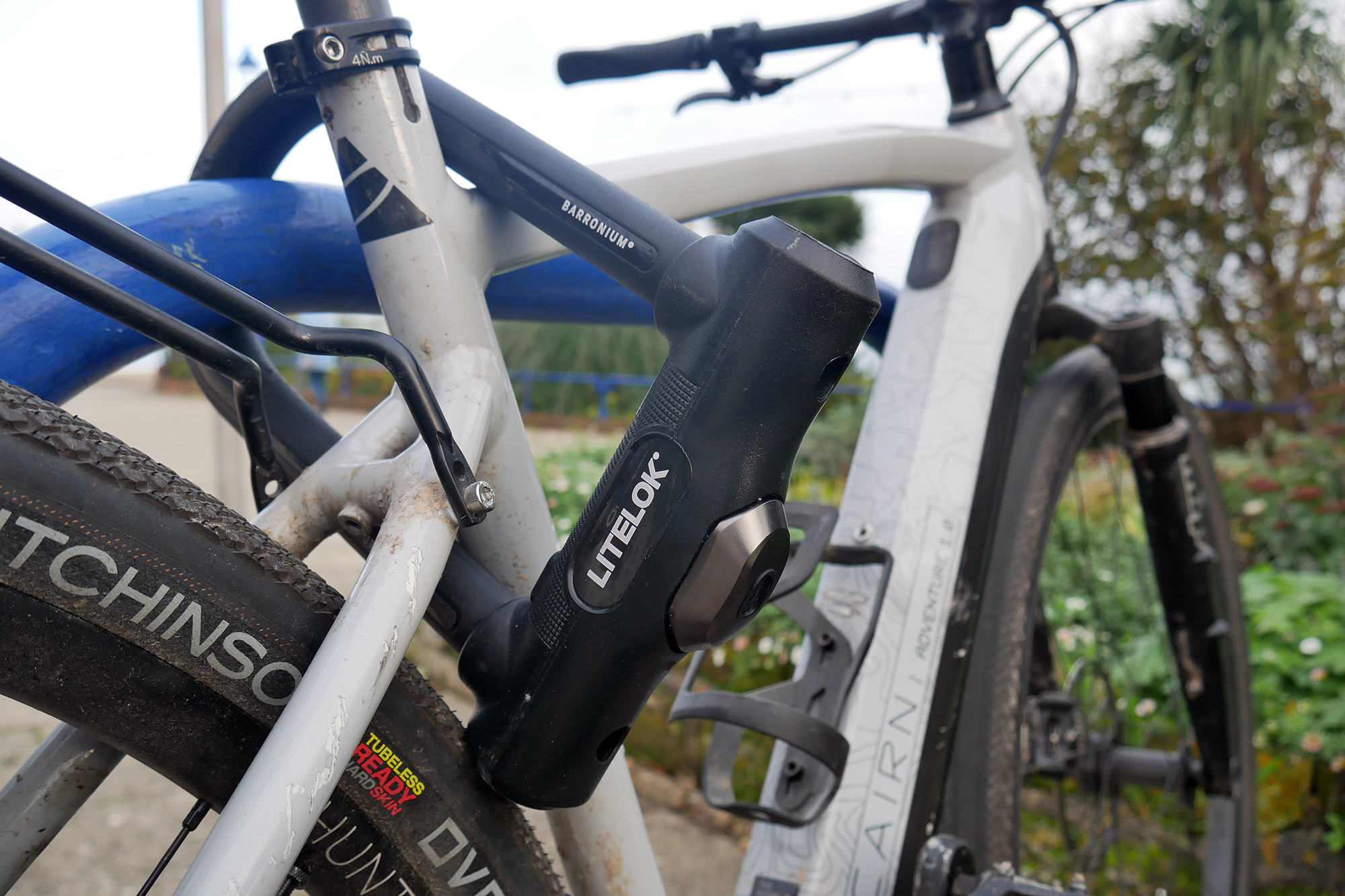
Locking a bike securely requires threading the lock through multiple parts of your bike
The recommendation has always been to travel with two high-security locks: one to secure your frame and rear wheel and the other to secure your front wheel to your frame or bike rack. However, carrying two locks is a little cumbersome, not to mention two sets of keys, and quite costly overall. With the advent of axle security devices and thru-axles for most high-end bikes, securing wheels with a lock has become less necessary.
Other ways to secure your bike without a lock include GPS trackers, registration, and, of course, purchasing the best bicycle insurance you can afford.
Assuming you have one high-security lock, the best practice is to thread it through the strongest part of your bike. This is usually the seat tube and seat stays, as pictured above. The strength of this locking method comes from not just multiple tubes being in the way but also the classic triangulation of forces.
This method ensures a secure lock. It also allows you to secure your rear wheel at the same time, provided your lock has enough reach. If necessary, a cable or chain can be attached to secure other parts of your bike, like a child seat or front wheel.
For a more comprehensive guide on securing your bike, have a look at our guide with advice on Eight Ways to Secure Your Bike
OnGuard has really hit the nail on the head, offering multiple diamond-rated locks around 1.3kg/2.8 lbs, two of which are featured in this guide. The OnGuard RockSoild is our current best bike lock overall, specifically because it balances its weight with its angle grinder resistance and overall cos so well.
The OnGuard Pitbull, our best budget lightweight lock, also weighs 1.3kg/2.8 lbs and while it doesn't offer angle grinder resistance, it is nearly a quarter of the cost.
However, compromises are often necessary to achieve low weights. It’s common to see that most brands will limit their reach, which affects the usability of these bike locks. Therefore, it's important to think about where you'll most frequently be locking your bike before deciding on a purchase.
This greatly depends on your locale and who is recognised as an independent testing house for bike locks, as each testing facility will use a slightly different scale. Manufacturers also often have their own rating systems to help consumers shop their range.
For most of Europe, though, ART is the respected testing house. In the UK and a large part of North America, Sold Secure is the recognized authority.
Regardless of who conducts testing, it is generally done in a similar way. For each level of security, a variety of forms of attack and a list of tools are used. In a very basic explanation, a time limit and the level of damage sustained are measured for each tool or mode of attack to determine qualifications for each level.
If you would like to learn more about who Sold Secure are and what their ratings signify, take a moment to read our interview with Sold Secure Lab Manager Guy McCaffery regarding the meaning of a Sold Secure rating.
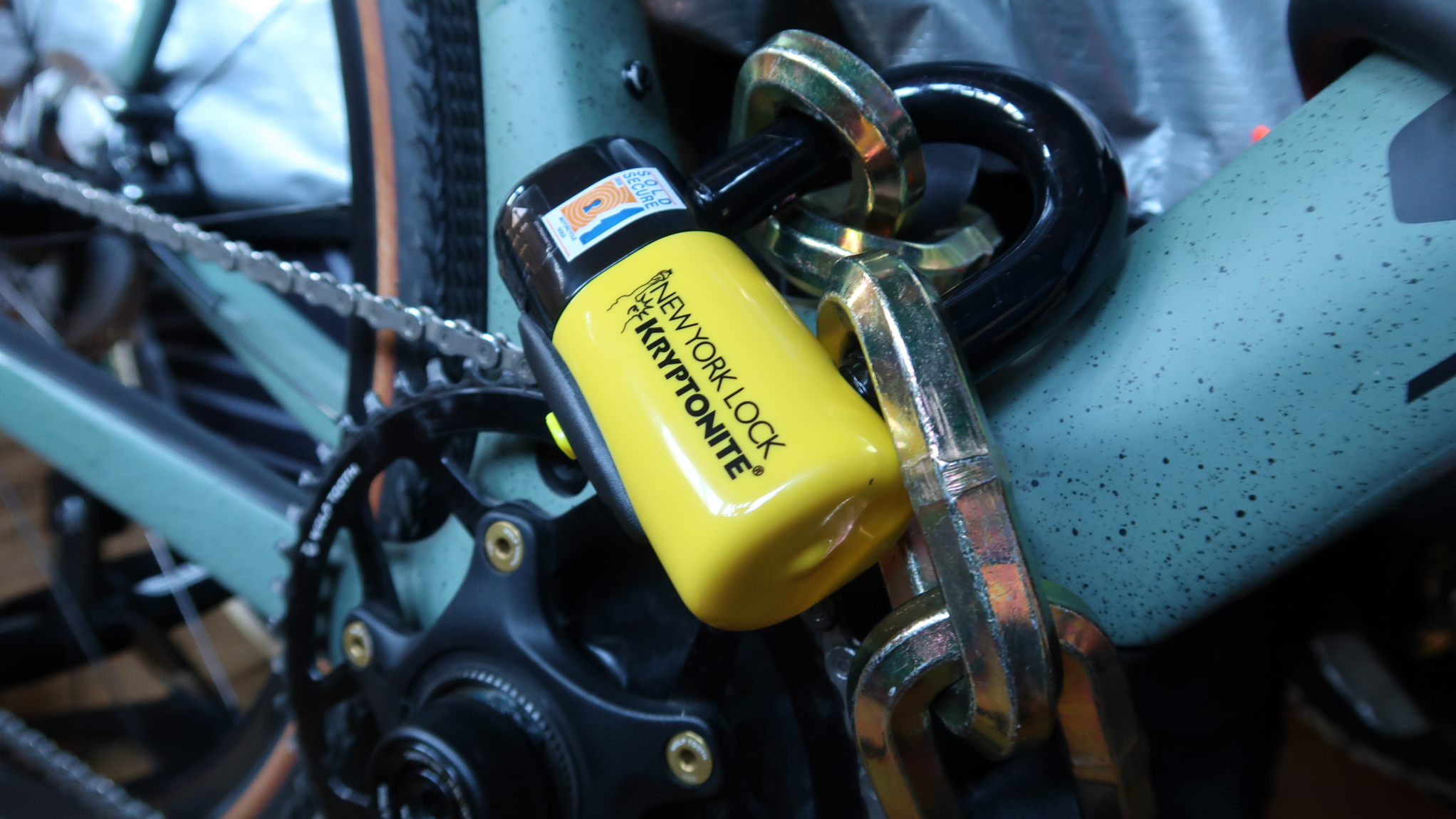
Look out for the Sold Secure logo, for reassurance of a locks security
The best bike lock is always the one that works best for your specific scenario. If you always have to lock against a lamppost or railing, a chain lock might be far better for you; others might find them a bit cumbersome and awkward to handle.
However, certain locks are more secure than others, greatly impacting which bike lock is the best in a given scenario. Regarding security, U/D-shaped locks are regarded as the most secure and offer far fewer weak points for thieves to exploit. Where flexibility and portability are concerns, there have been significant advancements in how secure the best folding locks are, with some now offering gold Sold Secure ratings.
While both offer pros and cons, key-operated locks are considered more secure. This is largely due to the high complexity of the mechanisms and the significant amount of hardened materials used, making them hard to pick and manipulate.
On the other hand, combination locks are incredibly convenient, and of course, they are not an issue if you lose your keys or multiple people in your household need to use the lock. Especially with the new breed of angle grinder-resistant locks, you won't want to lose a key for one of those.